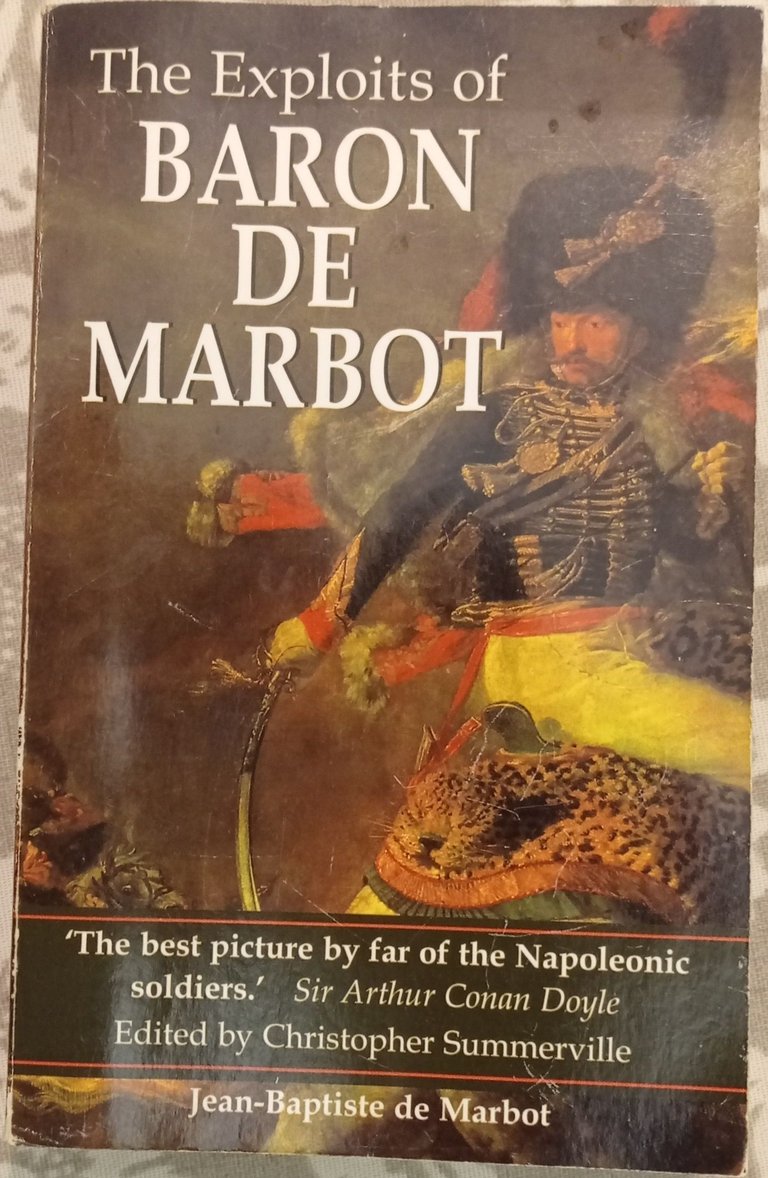I guess I'm a bit of an amateur historian, and one of the periods I dig deepest into is the Napoleonic Wars, and particularly the French army.
It helps that there are a huge number of primary sources, but very few of them make their way into English translations. This is one of the best of them.


As well as official documents, officers and generals of all sides wrote autobiographies and memoirs. They aren't always reliable ! There are very few from the perspective of ordinary soldiers (if I can find my copy of the Diary of Jakob Walter I'll re-read it and post a review...), but Marbot is close to it.
Jean-Baptiste De Marbot was a French cavalry officer. Despite the fact that his father was already a renowned general he enlisted in the 1st Hussars in 1799 shortly after his 18th birthday as a trooper, although I suspect everyone knew he was destined for almost immediate promotion.
But he earned it himself the hard way, and climbed steadily through the ranks as the wars progressed. He spent much of the time from 1803 until 1811 as an aide de camp for various generals and marshals, which put him in an excellent position to be at the heart of many key historical events (including leading the storming party that crossed the wall and opened the city gates at the assault on Ratisbon).
By the 1812 Russian campaign he was colonel of the 23rd Chasseurs as Cheval regiment (light cavalry), and at Waterloo he was colonel of the 7th Hussars. A nuance of the the way French army was organised meant that this was a relative promotion; hussars and chasseurs were both light cavalry, but hussars were considered the more senior branch of the service.

This book isn't his full autobiography, which ran to three volumes in the original French, or two in the 1892 English translation, but rather a shorter book of "best bits".
I can't decide if that's a good thing or not; I'll probably have to read the full memoirs one day and make my mind up. It's possible that the full narrative is dull and the editor of this book has managed to pick out all the worthwhile bits. But I doubt it; even in English translation Marbot's style shine through as easy to read and interesting. I suspect the full memoirs may not be as densely packed with action, but will still be full of fascinating anecdotes that shine a light on military life during the period.

What I particularly like about Marbot's writing is his honesty. Perhaps it was because he was a relatively junior officer for most of the time. I've read memoirs by senior generals that are nothing but boastful self-aggrandisement. Marbot has none of that. I suspect it helps that he wrote the memoirs for his children rather than to pursue a political goal. They were published posthumously, in 1891.
He's not ashamed of his (considerable) achievements, but neither does he over-exaggerate them. He also writes of his seniors and contemporaries with clear eyes, recognising their virtues and being honest about their faults without ever becoming judgemental. He's even willing to criticise Napoleon, recognising his genius and charisma while picking up on his mistakes and flaws.
Marbot doesn't gloss over the dangers and tribulations of campaigning. He was wounded thirteen times over the years, and it was clearly a traumatic experience each time. He was present when his father died during the Siege of Genoa, and Marshal Lannes died in his arms after being hit by a cannon shot at Aspern-Essling. But with all of these events, although they clearly affected him he doesn't ask for pity, he just says it how it was.

Overall, this book is a fascinating read. The editor has included a brief section at the start of each chapter outlining the historical background so the casual reader can fit it all together. Marbot's style is highly accessible and energetic, not stilted as so many memoirs are.
Marbot steps out of the pages as someone who was hugely courageous, an intelligent and quick-thinking loyal soldier, but above all a man who was open hearted, kind, and generous of spirit. He's someone I'd love to have had a long conversation with over a bottle of good wine.

Published in 2000 by Constable Publishers (Constable & Robinson Ltd). 294 pages. ISBN 0-09-480110-X
Photo is by me, of my copy of the book.


